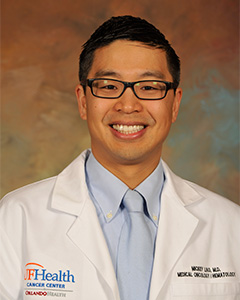How Old is Too Old for Cancer Treatment?
Mickey Liao, MD, is ABIM Board Certified in Hematology, Medical Oncology, and Geriatric Medicine.
People 65 and older are the fastest growing population in the U.S. According to the Administration on Aging, the percentage of Americans in this age group is expected to rise from 14.1 percent of the U.S. population to 21.7 percent by 2040.
This population shift has important implications for our health care system, especially in regards to treating cancer. Sixty-eight is the median age a person is diagnosed with cancer and people 65 and older are 11 times more likely to get cancer than their younger counterparts.
Geriatric oncology is an evolving field, and studies have shown that there is variation in cancer treatment by age. Unfortunately, older adults are less likely to get effective cancer treatment than young people — even though evidence shows they can tolerate it and benefit from this treatment. That may be due to the fact that the medical community is just as concerned about overtreatment as it is about undertreatment. Even still, decisions about appropriate treatment can’t be solely based on age.
Age and Cancer Treatment
Age is sometimes a factor in treatment because older people are more likely to deal with multiple chronic conditions, including diabetes, heart disease, high blood pressure, kidney disease and arthritis. Because the elderly may deal with overlapping health issues, often the right answer is to not pursue treatment that is super aggressive. However, doctors always should treat these patients, while keeping in mind that the process may be more intensive.
There are several options for cancer treatment, and many of these should be explored for older people. Clinical trials are one option, but only 20 to 40 percent of patients treated at cancer centers are eligible to participate because of the strict eligibility criteria. Loosening these requirements could encourage more participation, especially from older adults. Involving this age group in clinical trials could give us more data about how well the elderly respond to certain types of cancer treatment.
Several health experts also have suggested that the FDA require research that features older adults. Laws like the Affordable Care Act and the Orphan Drug Act currently incentivize manufacturers to test drugs in other treatment areas — for example, biologic drugs and drugs to treat rare diseases — so giving the FDA greater authority in this area could spur the development of treatments specifically designed with older adults in mind.
Another issue is that because of the lack of clinical trial data, there are no standard screening guidelines for older adults. However, using a comprehensive geriatric assessment to evaluate each patient holistically may help. The assessment evaluates each patient’s overall clinical, psychological and social health and his or her ability to handle treatment. The results can help to inform how doctors approach cancer treatment for the elderly. For example, it could show that an older adult is healthy enough to handle more aggressive therapy. After this, the patient can make a decision — in consultation with the doctor — about whether he or she wants to undergo this therapy.
Though we need to improve screening, diagnosis and treatment for older adults with cancer, we also need to recognize that the elderly have specific concerns about cancer treatment. Because of their age, some older adults have fears about maintaining their independence after a cancer diagnosis. They also may be worried about the physical impact of cancer and having to depend on others throughout the treatment process. These concerns are understandable, but they shouldn’t be barriers to potentially lifesaving treatment.
If the question is how old is too old for cancer treatment? Then there is no answer. Every patient is different. Older adults need to be assessed individually and should be given treatment options based on their overall health, rather than age. If an older adult has several chronic health issues, these should be managed to ensure they get the best cancer treatment possible. We also need to do a better job of diversifying clinical trials, so that older adults are included. This will allow us to get more and better data that will improve outcomes and ensure that older adults aren’t undertreated, but get the care they need.







